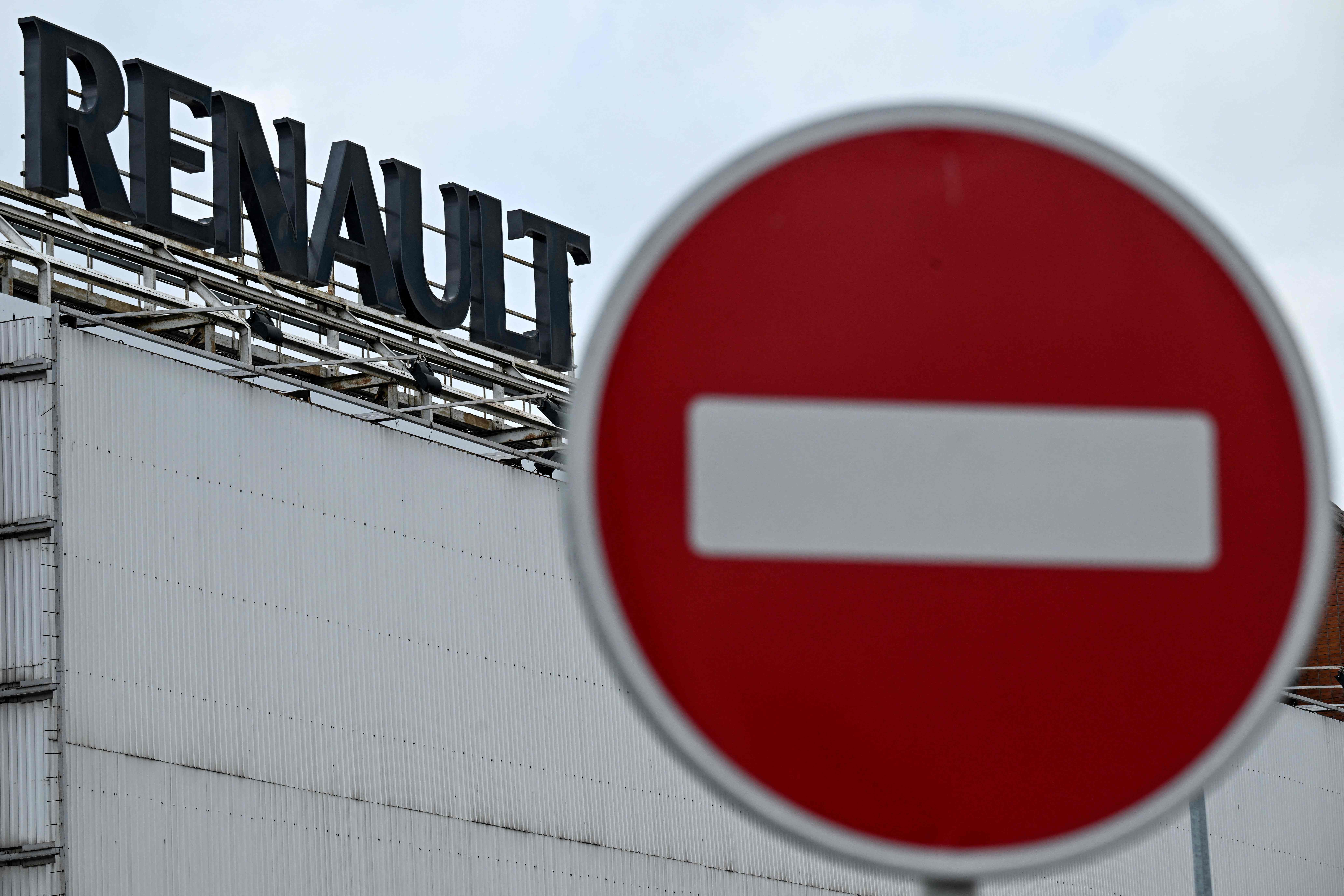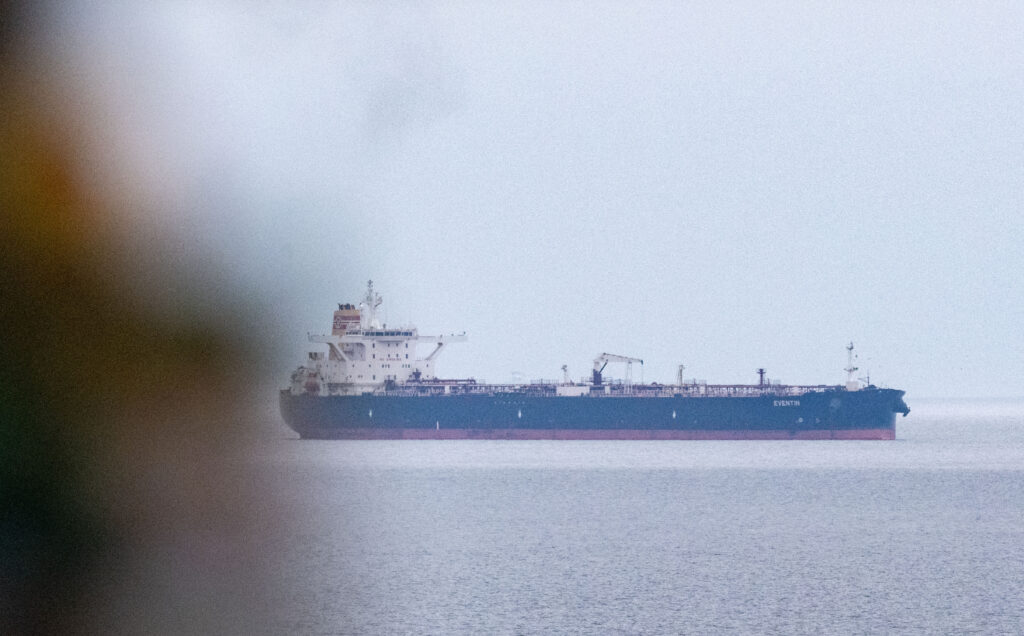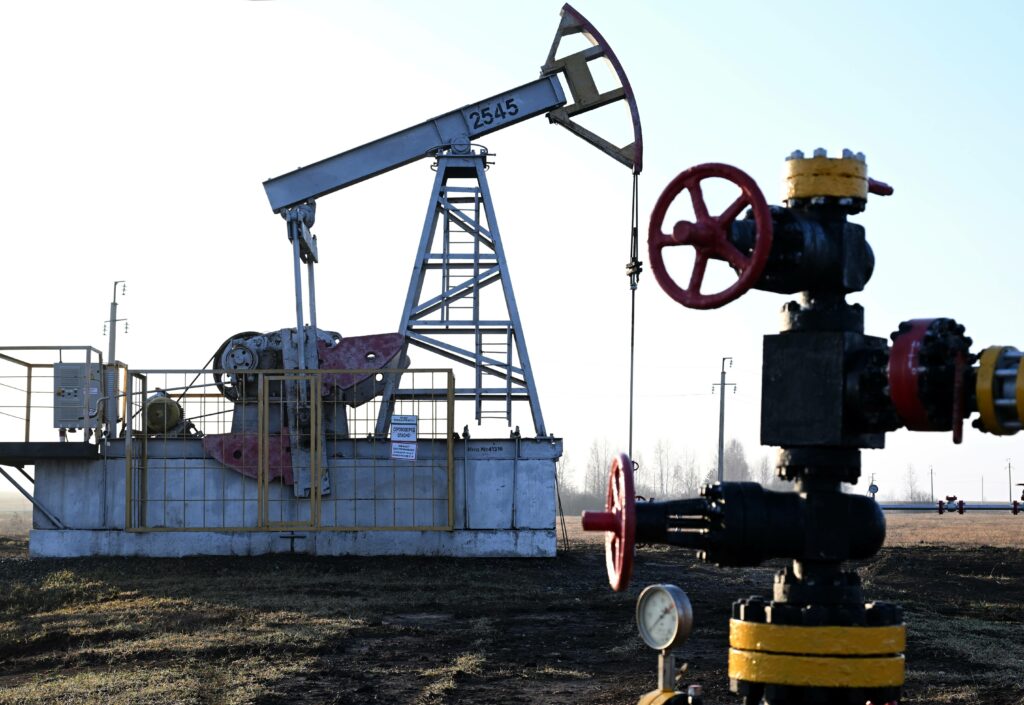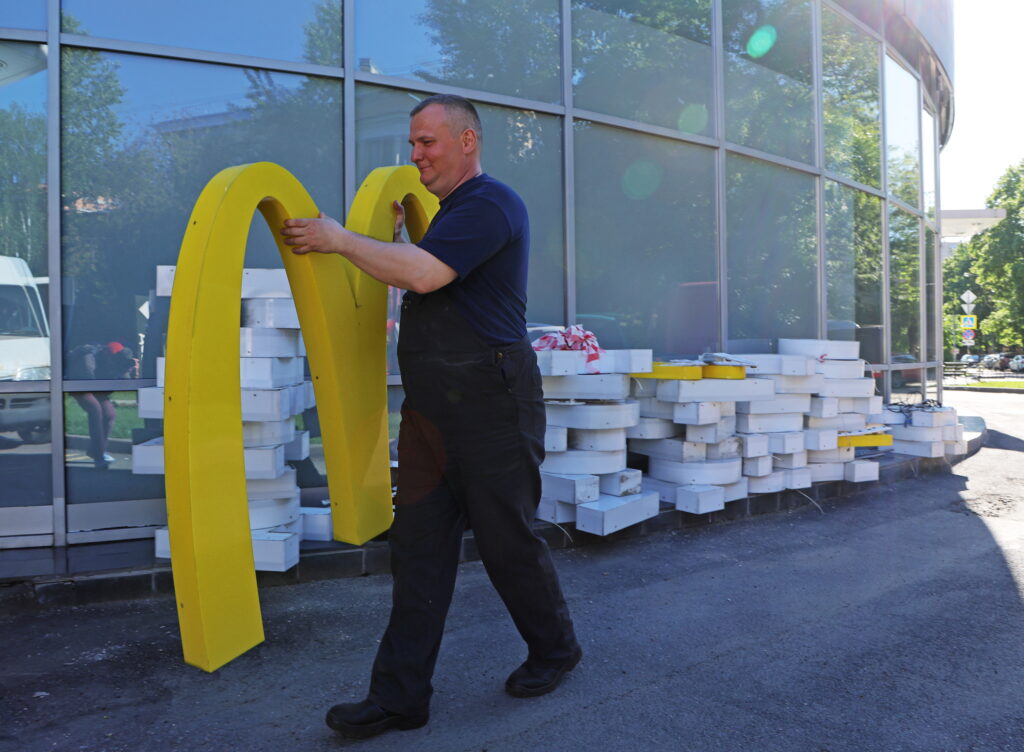In recent years, prior to Russia’s full-scale military involvement in Ukraine, relations between the ‘collective West’ (primarily the United States) and China had reached a stage of tension-filled trade wars, acute economic rivalry and growing political confrontation. However, from the perspective of Western businesses operating in China, the confrontation between the big powers was happening in the background, by no means pushing them to reduce their presence in the Chinese market or curb their business. On the contrary, the post-COVID recovery of the Chinese economy, despite its very moderate pace, has been accompanied by a significant boost in the revenues earned by multinational companies, some of which are planning to implement new investment projects and expand their presence in the country. Claims regarding the Chinese origin of the coronavirus pandemic, anti-Western political rhetoric or various ideologised innovations against businesspeople have not been able to reverse these trends, either.
One might think that the war in Ukraine should have prompted businesses to make adjustments in their strategic calculations, one reason being that China refused to criticise the Russian invasion, accused the USA and NATO of provoking it, and condemned Western sanctions against Russia. In fact, China has ‘Ukraine of its own’, namely Taiwan, at its side, and the Chinese authorities accept military solutions to rid Taiwan of independence. In the August 2022 edition of the White Paper, a periodic bulletin issued by the State Council of the PRC, China does not rule out a belligerent solution to the Taiwan question, and U.S. intelligence confidently asserts the existence of a secret order from Chinese President Xi Jinping to prepare the country’s armed forces for the annexation of Taiwan in 2027. Individual statements made by high-ranking Chinese officials, such as Foreign Minister Qin Gang, who urged some countries to «stop blaming China and stop shouting ‘Ukraine today, Taiwan tomorrow’,» do not look very convincing. In fact, this very minister was suspended from his office without reasons being stated, which happened seven months after his appointment and after a month-long absence from the public eye. Further, regular Chinese military exercises in sea and air space, including the practice of the operation to encircle Taiwan, have already become a standard thing and no longer come as a surprise to politicians. Accordingly, the risks of Chinese comrades launching a ‘special military operation’ to reunite Taiwan with mainland China seem quite high.
However, there is no indication that Western corporations have any ‘Plan B’ in case of such developments. Quite on the contrary. Against the background of increasingly frequent calls for a ‘great decoupling’, ‘risk mitigation’ and ‘balanced relations’, trade between countries such as, for example, China and the USA or China and Germany reached record figures in 2022. This makes the exodus of Western businesses from China more difficult and costly in the event of Chinese military invasion of Taiwan, as can be inferred from the dramatic picture emerging around attempts to terminate international business in Russia after 24 February 2022. Much has already been written about the procedural and legal complexities and excessively high costs associated with the exit from the Russian market, and one can fully agree that «what is happening today in Russia can be safely defined as the largest robbery of foreign investors in all known history.»
However, let me emphasise that in addition to billions of dollars in losses, the forced sale of assets for negligible prices, alienation of assets, the loss of a major market and dwindling prospects of going back, international companies, which were unprepared for the abrupt termination of their business operations in Russia, have also faced problems of a completely different nature (and will also face them in the event of Chinese military invasion of Taiwan).
«The human factor is key»
Over many years of their presence in Russia, Western companies have trained tens of thousands of Russian specialists, transferring know how, technology, experience, professional and managerial skills that have proven sufficient to at least resume the operations of enterprises that used to belong to owners from ‘unfriendly’ countries but had to come to a halt in the context of the war. Almost all companies that announced their withdrawal from Russia left a significant proportion of their manufacturing workforce and office staff in the country. In addition to personnel, the companies which remained without their foreign owners retained advanced equipment and machinery since the export of such machinery and equipment was banned by the Russian government as early as 10 March 2022, and the ban remains in force until the end of 2025. In addition, Russia legalised ‘parallel imports’, or the importation of foreign-made original goods without the consent of the rights holders.
These measures, together with restrictions on disinvestments abroad, a direct ban on the sale of assets in a number of strategic industries, and increasing barriers making it more difficult for foreign businesses to exit the Russian market, have enabled the new owners to resume operations relatively easily, mainly thanks to the support of partners from ‘friendly’ countries, mostly China. This has been clearly demonstrated in the Russian automotive sector: in the former Renault plant in Moscow, bought out by the government of Moscow and renamed ‘Moskvich’, assembly has been carried out by JAC. At the Volkswagen plant in Kaluga, which was taken over by car dealer Avilon and renamed ‘AGR Automotive Group’, assembly is carried out by Chery while specialists from the BAIC, Kaiyi and Shineray Group are working today at the facilities of Avtotor in Kaliningrad, which used to be the assembly plant for BMW, Kia and Hyundai.
Of course, we are not talking about a rapid and full-fledged restoration of production, supply chains and business processes at such enterprises, nor about their return to ‘business as usual’. There is no going back, and with the current low market volumes (in 2022, the Russian automotive market shrank by 59% year-on-year, and AvtoVAZ called it the worst year in its history), geopolitical risks and sanctions, the new owners will prioritise the task of survival over the tasks of development for a long time to come. Nevertheless, one must acknowledge that trained Russian personnel, localised technologies, transferred knowledge, know how and business solutions are being taken over by potential competitors, who can use them to strengthen their positions in global markets. For example, one of Scania’s former dealers became the new owner of Scania’s exclusive distribution business in Russia. In order to retain the truck servicing and maintenance operations, it reoriented its business towards the Chinese truck manufacturer Sitrak, placing a ready and well-developed dealer network at its disposal. As a result, the Chinese company did not only achieve a leading position in the Russian truck market within the first year of its operation in Russia, but is also apparently gaining very useful insights into the rules and peculiarities of critical data processing technologies, such as Scania’s fleet monitoring system, which Sitrak had only started developing before these events.
If a multinational corporation attempts to withdraw from the Chinese market, it might experience much more acute consequences, which is well illustrated by another example from the automotive sector. First of all, a significant share in the global sales generated by automotive companies is held by China (18.5% for Toyota; 38.6% for the Volkswagen Group; 40.0% for General Motors; 38.8% for Honda; 32.4% for Nissan; 33.0% for BMW; 36.8% for Mercedes, and 33.6% for Tesla). Secondly, Chinese companies are deeply integrated into global business and supply chains (for example, Geely is the owner of Sweden’s Volvo Cars, UK’s Lotus Group, and Germany’s Smart Automobile and is very active in M&A deals on the global market). Thirdly, almost every such global automotive corporation has a local Chinese partner, i.e. a joint venture participant who is very deeply immersed in the manufacturing and commercial operations of the joint business. It can be assumed that in order to exit China, automotive companies will be forced not only to sell their stake in the equity of the joint venture to their partner (most likely for a negligible fee), but also to ‘share’ their intellectual property registered in China, their personnel, production facilities, technologies and ready-made business solutions located there. Therefore, from the perspective of companies such as Tesla, which has over 50% of its manufacturing capacity located in China, or Apple, which mass-produces virtually all of its products, including iPhones and iPads, at its Zhengzhou plant, any attempts to exit China could cause irreparable damage to their business as a whole. Moreover, Chinese companies would not need to engage in technology theft at all, which was the case with American Superconductor Corp. in 2010. Ten years later, it was discovered that about 20% of wind turbines deployed in the country were illegally using its proprietary software. Technological achievements of international companies deployed in China will be ‘reassigned’ to local enterprises (or partners from ‘friendly’ countries, such as Russia) for further exploitation and use against their own creators.
Industrial policy in the service of war
As a country that is building a sovereign economy, Russia has traditionally pursued a strategy of reducing its dependence on foreign technology and imports in principle. As relations with most industrialised and technologically advanced countries have been deteriorating, the strategy has been revised: Russia is becoming increasingly focused on expanding its own productive capabilities, reaching autarkic industrial development and achieving technological sovereignty. Today, virtually all sectors of the Russian economy have implemented various government programmes, sectoral plans and import substitution roadmaps in order to achieve these goals. Public investments, reaching trillions of roubles, have been allocated, and the country has even established a Government Commission on Import Substitution. The Russian Ministry of Industry and Trade regularly highlights its successes, and various expert centres periodically report on Russian industry’s declining dependence on imports: from 49% in 1999 to 39% in 2018, «further decreasing in 2019−2022.» Recent development strategies for some industries specify import reduction targets. For instance, the target for the automotive industry is to achieve a reduction to 20% by 2035 while the goal for organic production is 24% by 2030. The large-scale nationalisation of Western companies’ assets, which is currently being carried out by the Russian government, and which remains surprising only for the owners whose assets are being seized, is also aimed, among other things, at achieving these goals.
In my view, Russia’s growing industrial sovereignty has created a sense of confidence among the authorities, who believed that the country’s economy was only marginally vulnerable to all sorts of sanctions and that the time was ‘opportune’ to launch military action against Ukraine. In this regard, it is worth emphasising that the regularities and peculiarities of Russia’s industrial policy pointed to the country’s readiness to intensify confrontation with the West countries and to make preparations for war.
The aforementioned assertion holds true not only for Russia, but also for China, as the latter country pursues its industrial policy following a similar yet more sophisticated logic. In the medium- and long-term plan for the development of science and technology until 2020, adopted back in 2005, the Chinese government aimed to raise the level of localisation in 11 sectors of the economy to 30%. Ten years later, the ‘Made in China 2025′ plan was adopted, where the targets for most sectors were tightened to 40% by 2020 and 70% by 2025. Further, this plan set market share targets for local corporations. For example, Chinese manufacturers of electric vehicles and power equipment must capture at least 80% and 90% of the market share, respectively. Further, in the autumn of 2020, Chinese President Xi Jinping approved the ‘China Standards 2035′ programme, whereby China should become a global developer of technologies, including 5G, the Internet of Things and artificial intelligence. Such tactic in the implementation of industrial policy implies a double effect: (1) localisation and increase in output produced by Western businesses in China, (2) dominance of local companies in the Chinese market. Moreover, this tactic is aimed at ensuring China’s readiness for various escalations in relations with the ‘collective West’ and minimising damage from possible sanctions. For example, today Intel exports billions of dollars worth of microchips to China, whose market accounts for approx. 50% of the global demand for semiconductors. The localisation targets discussed earlier have already forced Intel to increase its industrial presence and, consequently, production volumes in that country. However, the focus on ensuring the dominance of local companies in the semiconductor market does not only weaken Intel’s market position in China, but also makes its potential withdrawal from the Chinese market virtually painless for the Chinese economy. Similarly, Volkswagen’s subsidiary in Russia invested a total of around EUR 2 billion in production and localisation between 2003 and 2017, but the brand’s share in the Russian passenger car market did not exceed 6.4%. After the outbreak of war, Volkswagen did not only face a freeze on its Russian assets, but was eventually forced to sell them for just EUR 125 million, while the new Russian owner is now actively engaged in restoring production and expanding the business with the support of Chinese partners.
***
Vladimir Lenin, the ideologist and founder of the communist regime, once claimed that «the capitalists themselves will sell us the rope with which we will hang them,» while Karl Marx was sure that capitalists would «risk any crime, even if leading to the gallows,» in order to gain a return of 300%. In this context, the approaches employed by contemporary Russian and Chinese politicians towards building relations with Western business, the logic of their industrial policy, the threats they hurl and the decisions they make suggest that they have indeed mastered the ‘communist worldview’. The Russian political leaders have already presented their ‘picture of the world’, while Western corporations have learnt bitter lessons from it. Therefore, it is all the more important for multinational corporations to make strategic calculations regarding China, to rethink the risks arising from doing business in that country, and to have their own ‘decoupling’ action plan in case there is an outbreak of hostilities in Taiwan.










